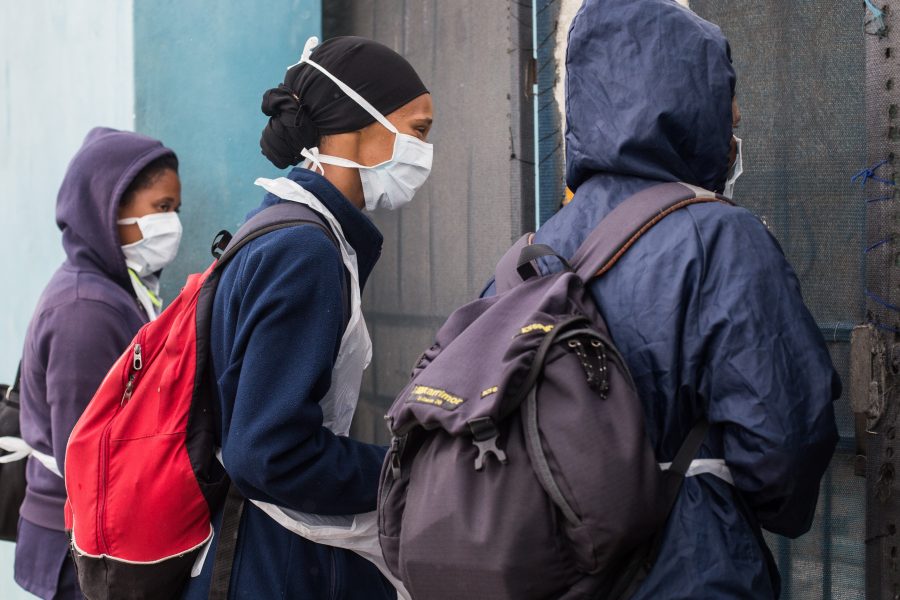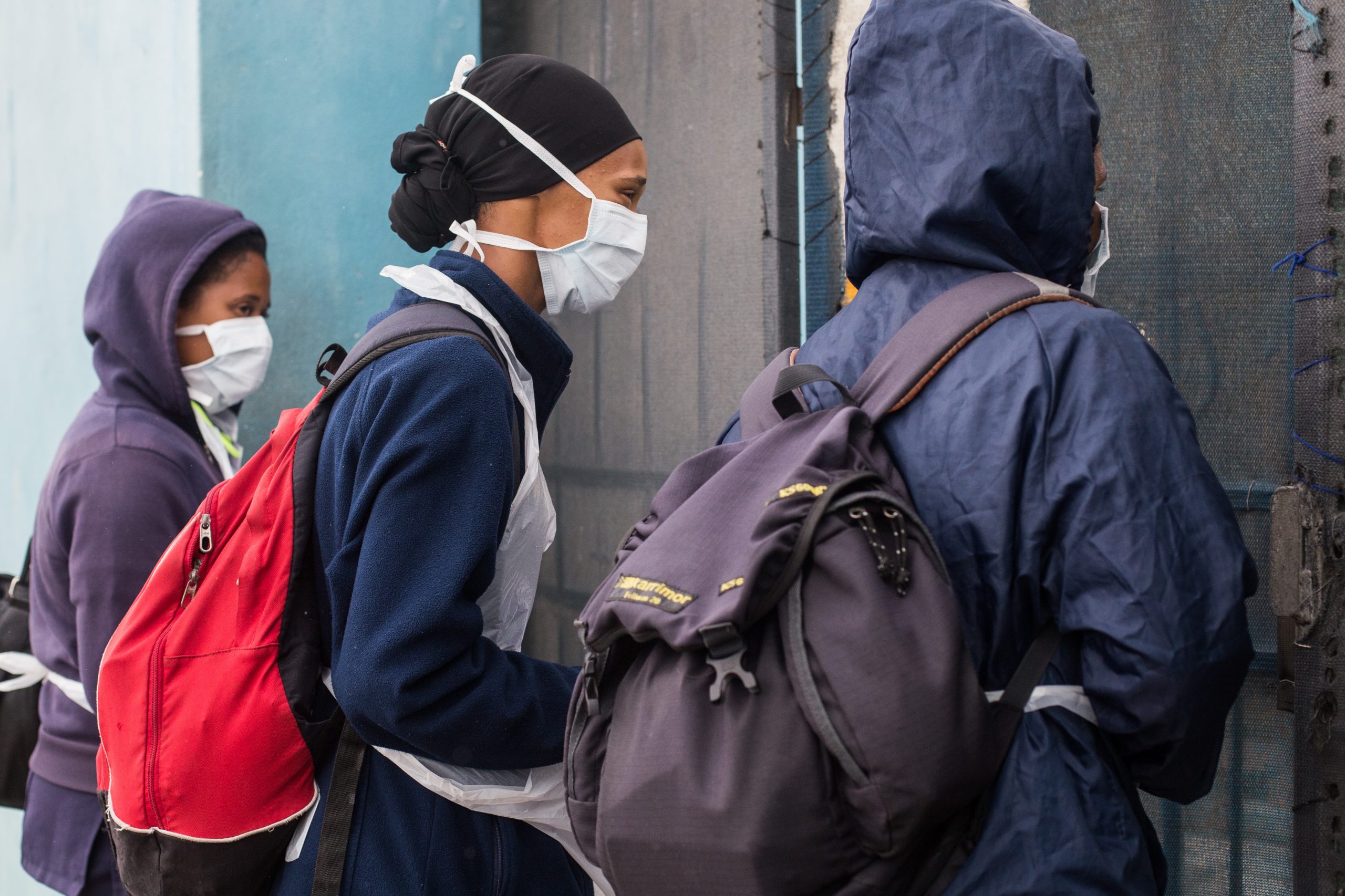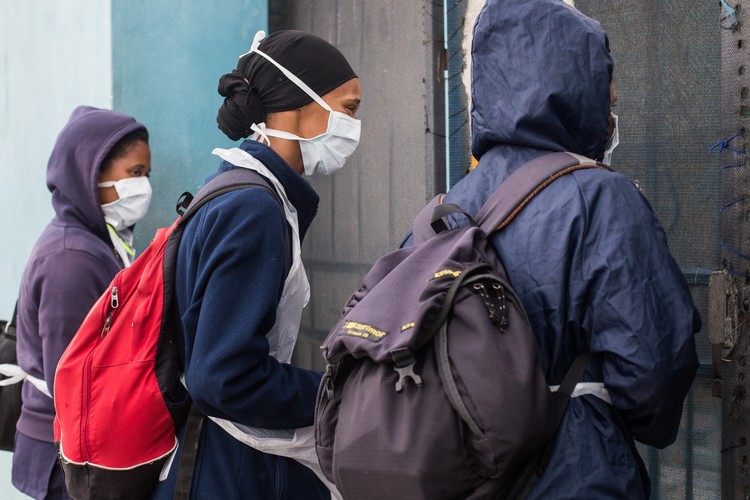
Covid-19: Come On South Africa, Let’s Make Masks
Covid-19 is a fast-moving epidemic with new knowledge emerging daily. President Cyril Ramaphosa, Minister Zweli Mkhize and others have shown outstanding leadership in rapidly implementing public health measures to address it. But there’s one important step they still need to add, which we hope will be supported across the country: encourage the wearing of home-made […]

Covid-19 is a fast-moving epidemic with new knowledge emerging daily. President Cyril Ramaphosa, Minister Zweli Mkhize and others have shown outstanding leadership in rapidly implementing public health measures to address it. But there’s one important step they still need to add, which we hope will be supported across the country: encourage the wearing of home-made masks or face coverings in public.

Based on the current evidence, widespread use of masks, in addition to the other public health measures we are taking, could reduce coronavirus transmission.
Accumulating evidence shows that masks may reduce transmission of Covid–19 and other respiratory viruses when implemented as a public measure. Masks can also reduce transmission of TB, another common respiratory disease in South Africa.
Data from China show that social distancing and compulsory mask-wearing in public places were highly effective in reducing the incidence of Covid–19 cases after the initial outbreak in Hubei Province and in containing transmission in other provinces after five million people left Wuhan before the Chinese New Year. The cases that occurred in other provinces, were mainly in families where masks were not worn inside the home. Universal mask wearing also resulted in reductions in other viral diseases.
Similarly in Hong Kong, most healthy people wore masks in public places. Following an early wave of imported Covid–19 cases, there were few local transmissions, but clusters of cases occurred in some families where masks were not worn. There was also a drop in laboratory detection of influenza and all other respiratory viruses.
Why might masks be effective in preventing COVID transmission?
Firstly, transmission may occur from people who don’t have any symptoms or prior to development of their symptoms. High rates of infection and a high incidence of asymptomatic or mild disease serve as an important source of transmission.
Secondly, new information shows that the virus may be spread not only by droplets, but also as an aerosol into the air.
Thirdly the virus spreads further than the two-metre social distance that is usually regarded as safe. Recent studies suggest that the virus may be spread 6–7 metres from a person. Especially in places where social distancing is difficult, universal mask wearing may help to reduce the risk of the disease spreading.
The Chinese Center for Disease Control and Prevention endorses this approach. Several countries have now implemented this in South East Asia as well as the Czech Republic, Germany and Austria. The US Centers for Disease Control and Prevention recently changed its guidelines to recommend widespread use of cloth masks in public. The Western Cape Department of Health has also recently recommended that individuals wear a cloth mask in public places.
With winter approaching in South Africa, wearing a mask may also reduce the spread of influenza and other respiratory illnesses, which are hard to distinguish from Covid-19. Requiring everyone to wear masks also destigmatises their use, prevents people from touching their faces, and makes people constantly aware of the need for cough and hand hygiene.
Wearing a mask protects others: “Your mask protects me, my mask protects you”.
A serious problem is the supply of surgical and N95 masks, so these should be restricted to use in health facilities. Government should consider regulating this.
Local production of surgical masks could possibly be increased. Taiwan for example produces ten million surgical masks per day. And careful control of the supply chain and distribution as well as philanthropic donations may further strengthen the supply of these.
Home-made options for a simple mask include using a bandanna, buff, or scarf. Masks can be easily made from T-shirts, pillowcases, or linen. Guidelines for making homemade cloth masks are available and such masks could be quickly manufactured. Each person should have two homemade masks, so that after a day’s use, one can be washed and the other then used. Also wash your hands before putting on or taking off a mask so as not to contaminate it.
One concern about mass use of masks is the false sense of safety, which may lead people to engage in less safe behaviours such as gathering in large groups. To address this concern, messaging to the public must emphasise that a mask is one additional important public health strategy to reduce transmission of Covid-19. Using a homemade mask can reduce infections, together with careful hand hygiene, social distancing, diagnosis of infected people and self isolation with tracing of contacts.
Start making and wearing masks today. It could save your life and the lives of your loved ones.
Further reading:
Published originally on GroundUp © 2020 GroundUp.
COVID-19 Masks on Carte Blanche
On Sunday, Carte Blanche investigates how South Africa is ramping up the Covid-19 testing and how face masks are becoming the new normal. (You can watch the show on Sunday 12 April in South Africa on DStv Now or stream it overseas in most countries from Tues 14 April if you’re abroad.)